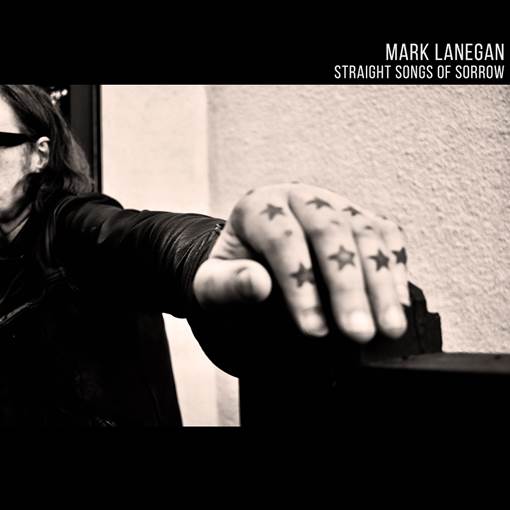Mark Lanegan is an artist that I have been aware of for a while. A former Screaming Tree, long time solo artist, serial collaborator, and a man who many wondered how he survived his darkest days, Lanegan’s recently published memoir, Sing Backwards and Weep, makes it clear that he appreciates just how lucky he has been to still be with us today. Straight Songs of Sorrow was written pretty much as soon as Lanegan completed his memoirs, and the album is effectively an audio autobiography and a musical accompaniment to Sing Backwards and Weep.
The album length autobiography is not a new idea. Elton John and Bernie Taupin had a best seller with Captain Fantastic and the Brown Dirt Cowboy and repeated the trick with 2006’s The Captain & the Kid, and in more recent years Stephin Merritt took the idea even further with The Magnetic Fields’ 50 Song Memoir. Given Mark Lanegan’s rollercoaster journey through life, as well as his unvarnished brutal honesty about his short comings and lesser moments, Straight Songs of Sorrow is an intense and compelling listen. Sure, it’s not the most cohesive album, but hey, who can claim their life is cohesive? Straight Songs of Sorrow leaps around and isn’t always necessarily coherent, because that’s what Lanegan himself has experienced.
Predictably, there’s plenty of introspection through Straight Songs of Sorrow, with the acoustic “This Game of Love” being a duet with his partner, Shelley Brien, in which Lanegan reflects on failed relationships, and “Stockholm City Blues” being a queasy string backed number which is probably this album’s most evocative reflection of his battles with addiction. In contrast to these acoustic numbers, there’s many a track where Lanegan’s lyrics are enhanced by layers of evocative electronica which may catch the ear of John Grant fans. There are also moments of lightness and optimism, but hey, anyone who has heard any of Lanegan’s previous music or have even heard about the man know that on the whole, Straight Songs of Sorrow will be a bit of a musical downer, and he’s unlikely to be busting out disco-pop bangers.
Given Mark Lanegan’s reputation as a much in demand collaborator, it’s only fitting that Straight Songs of Sorrow is an album littered with collaborators. Greg Dulli, John Paul Jones and Adrian Utley all make guest appearances, while Ed Harcourt appears on multiple tracks. That said, given the personal nature of Straight Songs of Sorrow it is fitting that Lanegan has had more involvement in the musical arrangements than he has had on his recent work, with only Mark Mortonsharing writing credit, and even then on only a few of the tracks.
Straight Songs of Sorrow is unlikely to be the album which sees Lanegan break out as a commercial superstar, it’s just not that type of release, as there’s little here which will translate into mainstream radio play. Instead this is a statement album, the type of LP you only put out if you’ve absolute faith in the integrity of your artistic vision. Listening to Straight Songs of Sorrow you get the feeling that this wasn’t an album that Lanegan chose to record, instead it’s one that he had to record. For most successful musical artists, they’ll have a few deeps cuts on their albums. Straight Songs of Sorrow is a deep cut of an album, which is more than fitting given that it is Mark Lanegan’s musical autobiography. Ultimately you learn more from someone who has experienced hardship, suffering and whose life has been an uphill struggle, yet whose talent has endured, than the individual who experienced success on the back of others.
As an album Straight Songs of Sorrow is a bit too long, it meanders, leaps around stylistically, and closes with the uncharacteristically optimistic “Eden Lost and Found”, but given that is inspired by Mark Lanegan’s life story, this is all absolutely as it should be.














No Comment